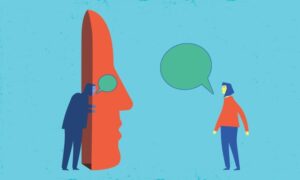Loneliness is the sense that you are alone and have little or no sense of belonging. There is usually a feeling of sadness or emptiness and you may even feel physical aches or pains. Because human beings are social creatures, it’s been hypothesized that aloneness triggers both pain and danger sensors in the brain, alerting us to the need for more social connection.
Loneliness and social isolation are pervasive and far-reaching problems, so much so that the U.S. Surgeon General declared them a public health crisis this year. A global survey conducted by the BBC in 2018 found that 40% of adults across 16,000 respondents from 22 countries reported feeling lonely often or very often. And the problem doesn’t discriminate based on age, location or other demographic barriers. While a National Poll on Healthy Aging in the U.S. (2020) reported that around one-third of adults aged 50 to 80 years experienced regular feelings of loneliness, a survey conducted by Cigna (2020) found that around 61% of young adults aged 18 to 22 in the United States also experienced the condition “often” or “always” .
Loneliness can have various effects on a person’s physical, mental, and emotional well-being. The effects can include mood and mental health impacts, declines in cognitive functioning, impaired social skills, decreased happiness and life satisfaction, and even physical health complications and increased mortality. Addressing and mitigating loneliness requires active efforts to build social connections, seek support, and engage in activities that promote meaningful interactions with others. Without those changes, it can contribute in significant ways to a reduction in the individual’s well-being:
Not unexpectedly, prolonged lack of social connection is strongly associated with an increased risk of mental health problems such as depression, anxiety, and low self-esteem. The absence of meaningful social connections can lead to feelings of emptiness, hopelessness, and a sense of isolation. When someone feels lonely, they may start questioning their self-worth and their ability to connect with others. The absence of social interactions and positive feedback from relationships can contribute to a decline in self-esteem and self-confidence.
Negative Effects of Loneliness
Loneliness often gives rise to negative emotions, including sadness, frustration, anger, and even jealousy. The lack of social support and companionship can leave individuals feeling emotionally unfulfilled and disconnected. Prolonged loneliness can hinder the development and practice of social skills. Individuals who experience chronic isolation may struggle with initiating and maintaining relationships, leading to a cycle of further loneliness and difficulty in forming connections.

Studies suggest that chronic loneliness can impact cognitive function, including memory, attention, and decision-making abilities. The persistent feeling of social isolation may contribute to difficulties in focusing, problem-solving, and overall cognitive performance.
Physical health can be adversely effected. Research indicates that lonely individuals may experience higher levels of stress, inflammation, and cardiovascular problems. They have also been found to have weaker immune function, poor sleep quality, and an increased risk of developing chronic conditions such as obesity, diabetes, and hypertension.
Decreased overall life satisfaction and a diminished sense of purpose and fulfillment are often consequences. The lack of meaningful social connections and support networks can leave individuals feeling unfulfilled and dissatisfied with their lives.
Studies have shown that loneliness is associated with an increased risk of premature mortality. The lack of social connections and support systems can have detrimental effects on physical health, mental well-being, and overall longevity.

Recognizing the pervasiveness and significance of social isolation has prompted efforts to address the issue at various levels. Governments, organizations, and communities are increasingly prioritizing initiatives aimed at reducing loneliness, promoting social connections, and enhancing overall well-being. As individuals, we can reach out to others who we know are isolated to ease their distress. For ourselves, we can take stock of the seriousness of the situation, realize that we are not the only ones struggling with this issue, and make the choice to change.
If you’ve been experiencing loneliness, please reach out for help. Sometimes, the journey to building an active and full life seems too daunting to begin. A skilled therapist can help you create a plan, support you in taking risks to reach out, and encourage you as you build a life worth living. We’d love to hear from you.
Resources:
NIH Toolkit for organizations: https://www.nia.nih.gov/ctctoolkit
Center for Disease Control: https://www.cdc.gov/howrightnow/emotion/loneliness/index.html
https://www.endsocialisolation.org/social-isolation-and-loneliness-1




